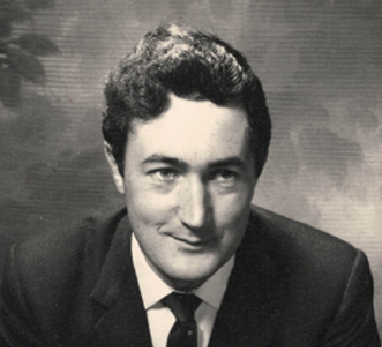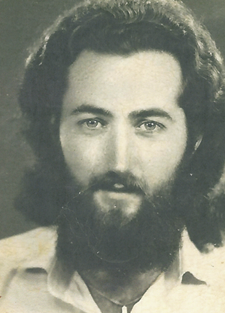William Weaver sadly died from the asbestos related illness, mesothelioma, on 10 March 2021. He had been diagnosed with the disease in late October 2020 and, as his illness progressed very rapidly, he was unable to provide a formal statement commenting upon his working history and where he had come into contact with asbestos dust.

William had however advised his medical team and his son, Richard Weaver, that he had been exposed to asbestos dust during his time working as a carpenter. Richard has accordingly instructed specialist asbestos disease solicitor Lauren Bull of Hugh James to help him investigate his father’s working conditions further.
We know that William undertook a 5 year carpentry apprenticeship with WA Davis upon leaving school in 1953, and that he spent some time thereafter completing his National Service and travelling the world. Upon his return to Wales in 1962 William worked as a jobbing carpenter. He advised Richard that as part of this role he was required to cut asbestos sheet cladding to size. Cutting asbestos sheets triggers the release of asbestos fibres into the atmosphere, resulting in exposure to the deadly dust.
William particularly recalled working on the construction of Neville Hall Hospital in Abergavenny, the Ty Fry housing estate in Blaenavon, the County Hall in Cwmbran, the Llandegfedd Reservoir and flyovers in Newport town centre. We know that during this period William had worked for a number of companies including M J Gleeson, Thyssen Shaft Sinking Co (GB) Ltd, C Walmsley, Sir Robert McAlpine & Sons Ltd, Tersons Ltd, Wilson Lovatt & Sons Ltd, Truscon Ltd, The Cementation Co Ltd, Holland Hannen & Cubitta (Southern) Ltd and E Turner & Sons Ltd.

What we do not know at this stage is exactly what William was working on whilst employed by each individual company. Sadly, William’s wife pre-deceased him and he was no longer in touch with any former colleagues who might have been able to confirm what he had been doing, and when.
Richard is accordingly appealing for help from any witnesses who worked with his father for any of the companies or on any of the construction projects listed above. Even if witnesses do not remember William, any information provided about the working conditions at these construction sites could help Richard in his quest for answers as to how his father was exposed to asbestos dust at work.
Specialist solicitor, Emma James, said:
“We know that Mr Weaver would have almost certainly been exposed to asbestos as a carpenter, mostly likely whilst cutting asbestos insulation board or Asbestolux sheets. In order to pursue a claim against one of the above companies, we ideally need to locate one of Mr Weaver’s former colleagues who can confirm that he did in fact work with asbestos. Alternatively, even if you did not know Mr Weaver but worked on any of the above jobs or with one of the above companies and came into contact with asbestos, we would really appreciate speaking to you. Any help you can provide will be greatly appreciate by Mr Weaver’s family”.



